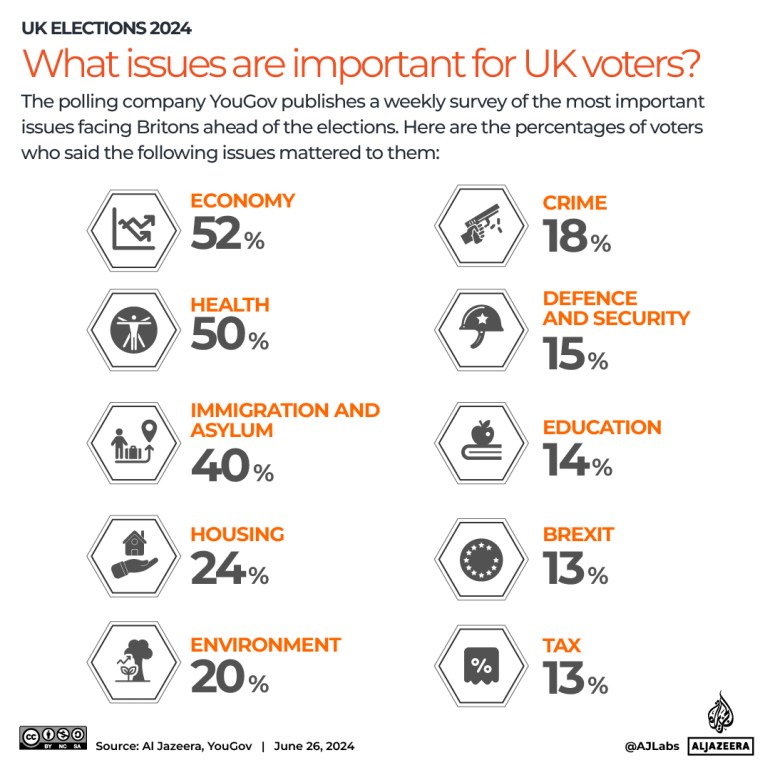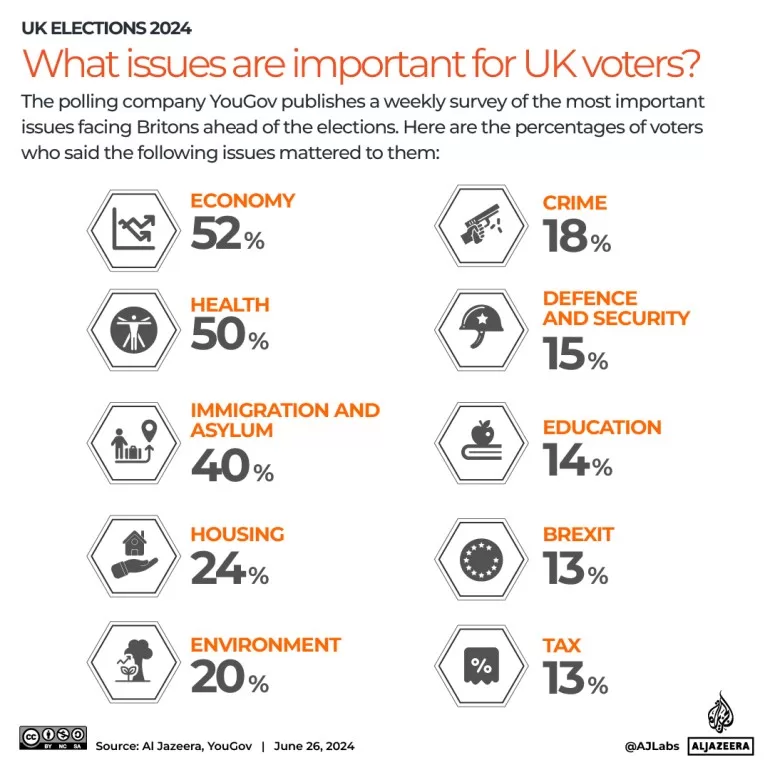Voters set to punish Conservatives after 14 years of chaos, as anger mounts over economic crisis and crumbling services.
Voting began at 7am (06:00 GMT) on Thursday in more than 40,000 polling stations across the country, with an exit poll after polls close at 10pm (21:00 GMT), when counting will also start.
The centre-left Labour is projected to win its first general election since 2005, with several election eve polls forecasting its biggest-ever victory.
But Labour leader Keir Starmer, 61, was taking nothing for granted as he urged voters not to stay at home. “Britain’s future is on the ballot,” he said. “But change will only happen if you vote for it.”
Prime Minister Rishi Sunak called the election six months earlier than expected against a gloomy backdrop of a cost-of-living crisis, a declining National Health Service and mounting distrust in institutions.
Sunak, 44, who is widely seen as having conducted a dismal campaign, prompting mass outrage last month when he ditched D-Day commemoration events early for an election interview, has said the result is “not a foregone conclusion”.
But on Wednesday, as polls pointed to a heavy defeat for the Conservative Party, he seemed to concede that Labour appeared headed for a super majority, urging voters to back his party to limit the rival party’s “unchecked power”.

Punishment
Polls suggest voters are intent on punishing the Conservatives after 14 years of often chaotic rule. The most recent scandal saw party officials and candidates using inside information to place bets on the election date before it was announced.
Public anger still lingers over former Prime Minister Boris Johnson’s lockdown-breaching parties during the COVID-19 pandemic. Johnson’s successor, Liz Truss, rocked the economy with a package of drastic tax cuts and lasted just 49 days in office.
A string of government ministers are likely to be unseated in the election, with talks that even Sunak might not be safe. If that happens, he would be the first sitting prime minister to fail to retain his seat in a general election.
For many voters, the lack of trust applies not just to Conservatives, but to politicians in general. Nigel Farage, leader of the anti-immigrant Reform UK party, has leaped into that breach and grabbed attention with his anti-immigration rhetoric.
The centrist Liberal Democrats and environmentalist Green Party also want to sweep up disaffected voters.
Follow live updates on the election here.
